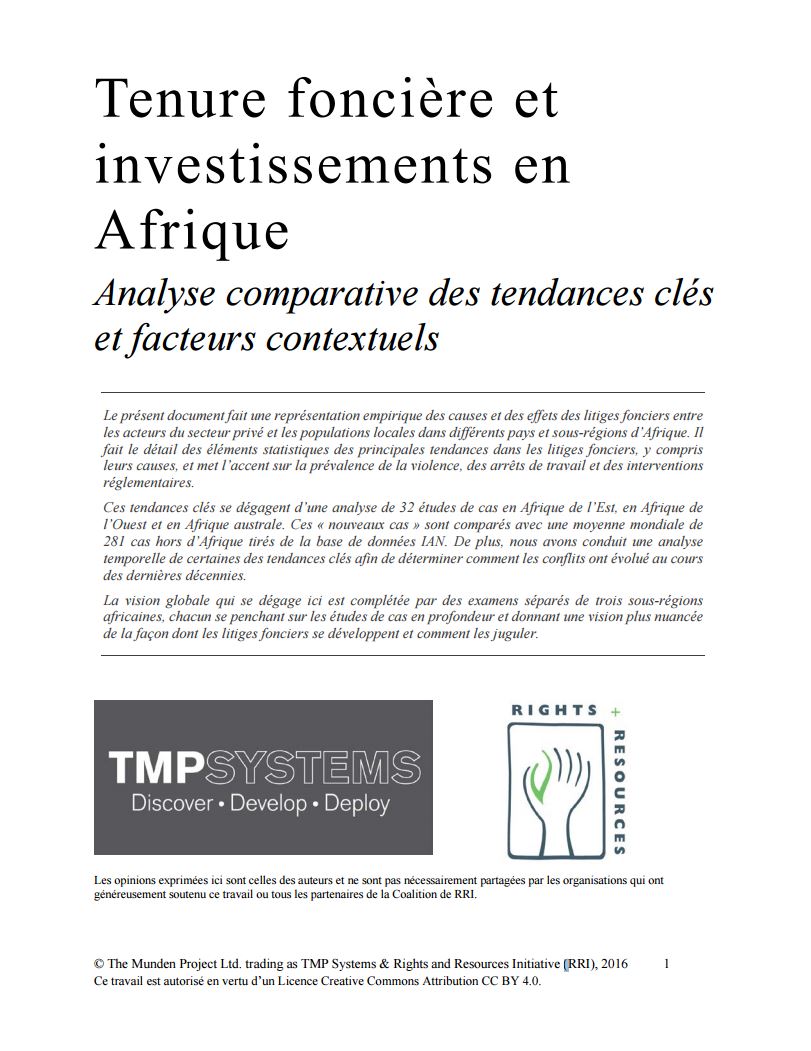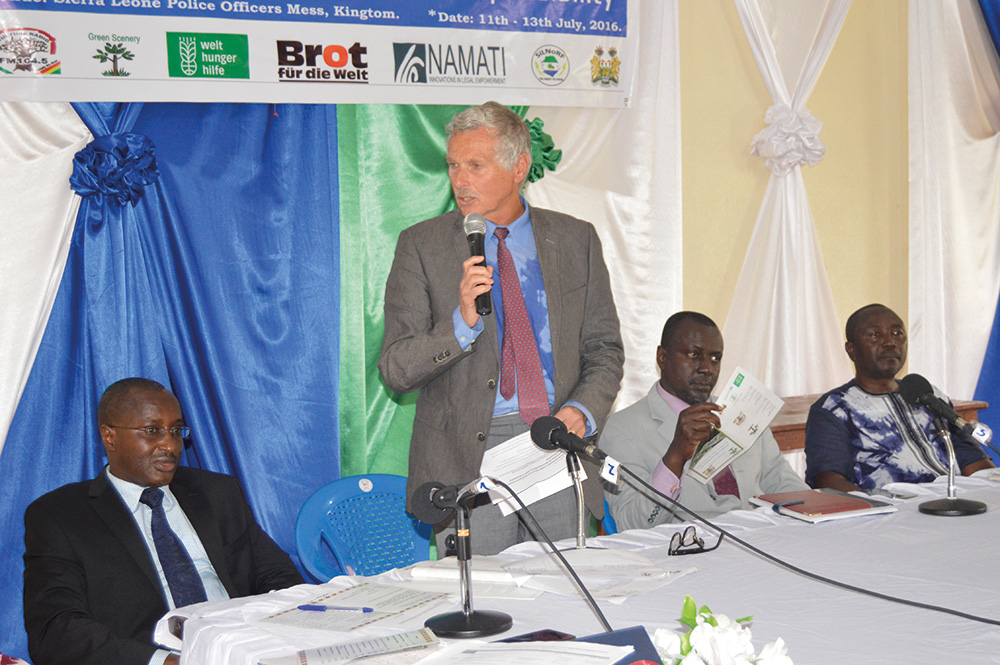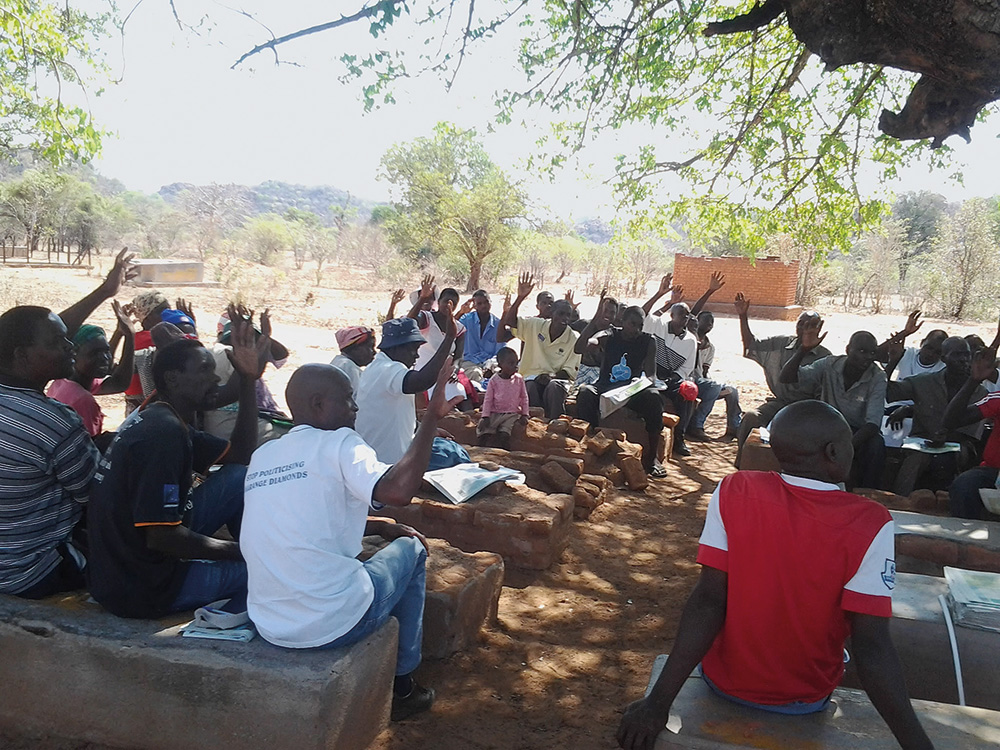Those in darkness drop from sight
Sierra Leone is one of the least developed countries in the world and is still recovering from a civil war that ended in 2002. Increasingly, the Sierra Leonean government seeks to attract foreign investors through providing opportunities for large-scale land leases for the development of agribusiness. This has triggered a rapid transformation process that poses a considerable threat to food security and social stability. Despite being a pilot country for the implementation of the Voluntary Guidelines on the Responsible Governance of Tenure, there is no real change on the ground as yet.
Negotiating fair settlements
Marked power imbalances often result in communities losing out in use conflicts over their territories and resources. This applies in particular to extractive industries and infrastructure projects. Community protocols can help bring the negotiating parties together at eye level and create a balance of interests.
A conflict-sensitive approach is needed
Despite good potential for food production, South Sudan’s agriculture is not feeding its population. The impacts of decades of armed conflict are posing enormous challenges for the sector. Farmer Field Schools seem to be a promising instrument to improve food security and livelihoods of small-scale farmers in the country.
Pastoralism and conflict – two sides of a coin?
Pastoralism – the predominant form of livestock keeping in the Horn of Africa – has always been a source of disputes and tensions in the region. So it is maybe no coincidence that precisely those countries with the largest cattle and camel herds should be the ones that have been suffering from prolonged armed conflict for years. This article takes a look at the closely interwoven aspects influencing conflicts in the Horn of Africa in general and South Sudan more specifically.
Zimbabwean migrants destabilise the north of South Africa
The sheer number of refugees from Zimbabwe puts a heavy burden on the province of Limpopo in South Africa. These new arrivals strain the already weak structure of the local labour market. The result is frustration and bitterness for local people.
Population dynamics and rural development in Burkina Faso
Labour migration, primarily to Côte d’Ivoire, masked the high rate of natural population growth in Burkina Faso for many years. However, since a political crisis began in this neighbouring country in late 1999, many Burkinabe have returned home. This posed major challenges, especially for rural areas. In the south of the country, shrewd population policy and appropriate rural development programmes have been e? ective in meeting these challenges.
Guinea pigs: a guarantee of food security and a source of income in South Kivu, Democratic Republic of Congo
The years of war have led to a rapid decline in the nutritional status of people in the Democratic Republic of Congo. To cover their protein requirements, the rural population in the Kivu region in the east of the country have turned to raising guinea pigs. For many families these rodents are nowadays not just a vital element of their food security, but also an essential source of income.
The Horn of Africa: confl ict prevention through regional mechanisms
The Horn of Africa is one of the most conflict-prone areas of the world. It is also home to about 20 million pastoralists, which keep moving with their livestock in search for grazing land and water points. Pastoral conflicts are becoming more and more serious. CEWARN - a regional mechanism for preventing conflicts - tries to close the gap between 'early warning' and 'early response'.
Millennium Ecosystem Assessment II
- Land and water scarcity as drivers of migration and conflicts?
The Millennium Ecosystem Assessment projects that the intensification of freshwater scarcity in combination with continuous water extraction from delicate dryland ecosystems is likely to exacerbate desertification, thus leading to a downward spiral of ecological deterioration and a precarious depreciation of livelihoods in many developing regions. This in turn can push people to migrate, which can have far reaching implications affecting local, regional, and even global political and economic stability.
Development policy and security policy: An alliance with conflict (management) potential
In Germany, the debate about the security/development nexus is gathering pace. The reality of life in crisis regions, the management of post-conflict situations and the precautionary anticipation of demands arising in the context of crisis management all require the highest level of coordination at political and local level and on a cross-sectoral basis. Long-term improvement of this coordination, both vertical and horizontal, is the most important resource factor for these two policy areas and can be achieved without mobilising additional budget funds.
Afghanistan: failing state - failing cooperation?
Six years after the fall of the Taliban, Afghanistan is a long way from political stability and economic progress. The decline of state influence continues, especially in rural areas; because of the security situation, aid organisations are drastically cutting back their programmes and military considerations are taking on overriding importance.









